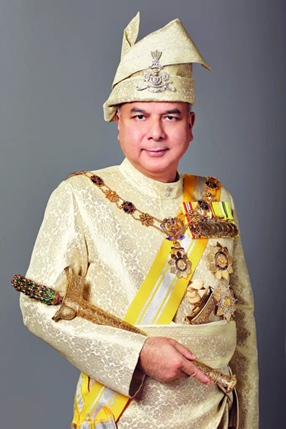
By Yong Soo Heong
By any measure, Sultan Nazrin Muizzuddin Shah’s keynote at the launch of National Integrity Month 2025 in Ipoh on Nov 5 was not just a speech — it was a moral reckoning.
Delivered with clarity and conviction, it pierced through the fog of complacency. It summoned Malaysians to confront a truth we’ve long sidestepped: our nation’s moral compass is faltering, and the crisis begins in our classrooms.
For decades, we’ve poured billions into education. The 2026 budget alone allocates RM84.8 billion to the Ministry of Education and Higher Education. Yet, as Sultan Nazrin warned, these figures are hollow if they fail to cultivate empathy, honesty, and civic responsibility.
What good is academic excellence if it’s divorced from ethical grounding? What is the value of a straight-A student who cannot distinguish right from wrong?
The Sultan’s message was clear: education must be more than instruction—it must be guidance. Teachers are not merely conveyors of knowledge; they are sowers of values. Schools must not only produce the brightest minds but also the kindest hearts.
And if we fail to nurture integrity in our youth, we risk raising a generation brilliant in intellect but bankrupt in conscience.
His Royal Highness traced the etymology of integrity to the Latin integer—complete, whole, steadfast. It is not a slogan, nor a policy document.
It is a way of life, cultivated through continuous education, nurtured at home, reinforced in school, and inspired by leadership. Integrity is not born spontaneously. It must be taught, modelled, and lived.
The Sultan’s lament over the moral decay in schools was sobering. Bullying, violence, and even murder among children under 17 are no longer rare headlines—they are symptoms of a deeper rot.
He cited disturbing studies: 30.5% of university students willing to accept bribes; one in three unable to recognise corruption; students bribing peers for class monitor positions. These are not isolated lapses — they are systemic failures.
And yet, the problem is not just within the walls of our schools. It is in our national psyche. We have become obsessed with Key Performance Indicators (KPIs), rankings, and statistics — metrics that measure output but not character.
We drill children to answer exam questions mechanically, but do they understand how to empathise, to respect, to serve?
Sultan Nazrin’s address was not merely a critique — it was a call to conscience. He urged Malaysians to abandon the culture of denial, ego, and compromise that has allowed moral decay to fester.
He reminded us that integrity must be embodied—not just in policy, but in everyday conduct. From public service to family life, from boardrooms to schoolyards, integrity must be our compass.
He illustrated this vividly through three road accident incidents—two in Malaysian villages, where spilled rice and milk were taken home by bystanders, and one abroad, where every bottle of toppled drinks was returned to the truck driver. The contrast was stark. The lesson was clear: integrity is not about laws — it is about conscience.
The Sultan’s exhortation to restore the sacred purpose of education is not a nostalgic plea — it is a strategic imperative. If we want a Malaysia that endures with dignity, we must begin by rebuilding the moral foundations of our youth.
We must teach them that success without honesty brings no blessing. That scripted achievements mean nothing if they are hollow. That true greatness begins not with grades, but with grace.
He drew wisdom from across faith traditions—from the Bible and Bhagavad Gita to Guru Nanak and Buddhist teachings — all of which uphold honesty, morality, and public virtue as sacred duties. He praised leaders like Senegal’s President Bassirou Diomaye Faye for their humility and spiritual grounding, and cited Saidina Abu Bakar Al-Siddiq’s inaugural speech: “If I do good, support me; if I err, correct me.”
This is the leadership we need. Leadership that is accountable, humble, and rooted in truth. Leadership that looks into the faces of children before making decisions, and asks: Would Allah be pleased if my family became the family of a thief who betrayed his country?
As we mark Integrity Month 2025, let us not treat it as a ceremonial observance. Let it be a turning point. Let it be the moment we reclaim the soul of education, the conscience of governance, and the moral compass of our nation.
Because when integrity fails, so does the nation.
WE